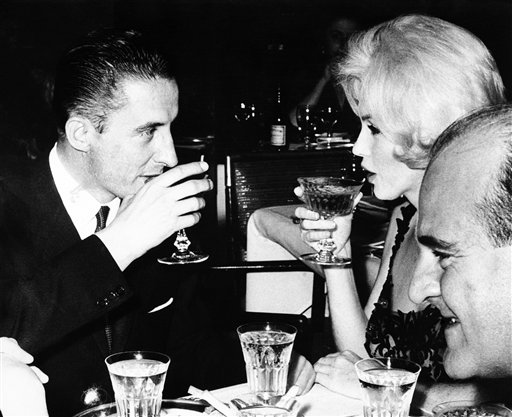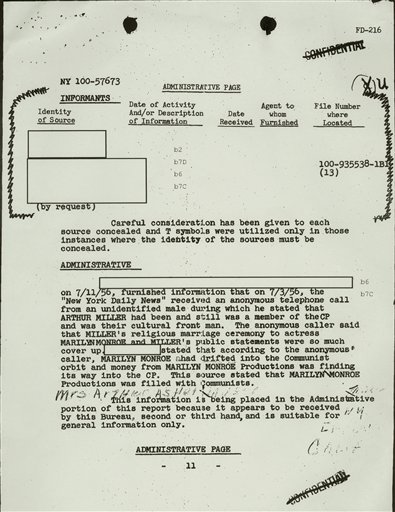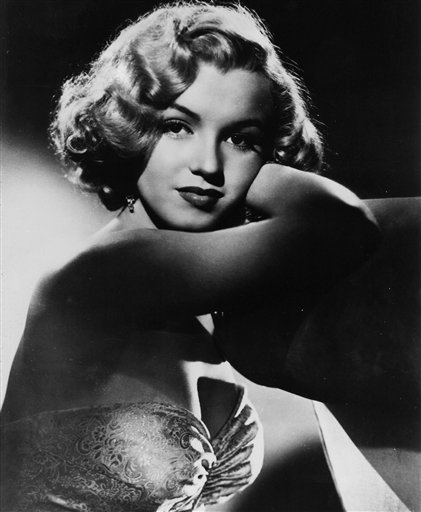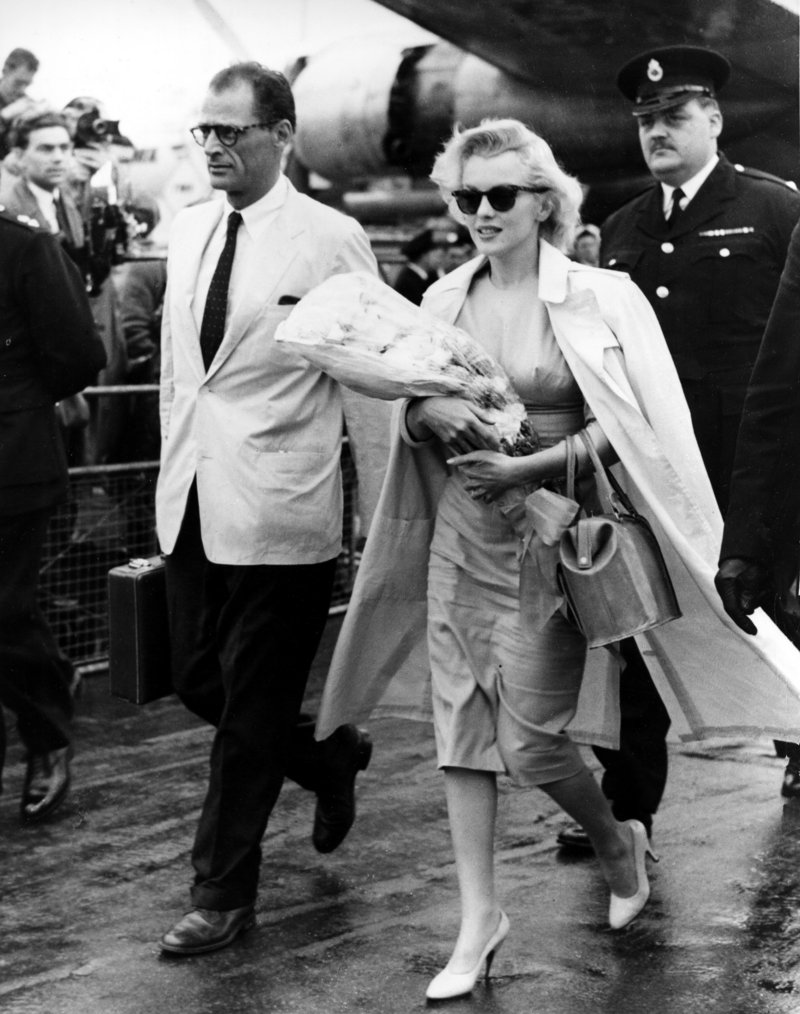LOS ANGELES – FBI files on Marilyn Monroe that could not be located earlier this year have been found and re-issued, revealing the names of some of the movie star’s acquaintances who drew concern from government officials and her own entourage.
The files had previously been heavily redacted, but more details are now public in a version of the files recently obtained by The Associated Press through the Freedom of Information Act. The updated files reveal that some in Monroe’s inner circle were concerned about her association with Frederick Vanderbilt Field, who was disinherited from his wealthy family over his leftist views.
The FBI’s files on Monroe show the extent the agency was monitoring the actress for ties to communism in the years before her death in August 1962. A trip to Mexico earlier that year to shop for furniture brought her in contact with Field, who was living in the country with his wife in self-imposed exile. Informants reported to the FBI that a “mutual infatuation” had developed between Field and Monroe, which caused concern among some in her inner circle, including her therapist, the files state.
It includes references to an interior decorator who worked with Monroe’s analyst reporting her connection to Field to the doctor.
Field’s autobiography devotes an entire chapter to Monroe’s Mexico trip, “An Indian Summer Interlude.” He mentions that he and his wife accompanied Monroe on shopping trips and at meals and he only mentions politics once in a passage on their dinnertime conversations.
“She talked mostly about herself and some of the people who had been or still were important to her,” Field wrote in “From Right to Left.” “She told us about her strong feelings for civil rights, for black equality, as well as her admiration for what was being done in China, her anger at red-baiting and McCarthyism and her hatred of (FBI director) J. Edgar Hoover.”
Under Hoover’s watch, the FBI kept tabs on the political and social lives of many celebrities, including Frank Sinatra, Charlie Chaplin and Monroe’s ex-husband Arthur Miller. The bureau has also been involved in numerous investigations about crimes against celebrities, including threats against Elizabeth Taylor, an extortion case involving Clark Gable and more recently, trying to solve who killed rapper Notorious B.I.G.
The AP had sought the removal of redactions from Monroe’s FBI files earlier this year as part of a series of stories on the 50th anniversary of Monroe’s death. The FBI had reported that it had transferred the files to a National Archives facility in Maryland, but archivists said the documents had not been received. A few months after requesting details on the transfer, the FBI released an updated version of the files that eliminate dozens of redactions.
For years, the files have intrigued investigators, biographers and those who don’t believe Monroe’s death at her Los Angeles area home was a suicide.
A 1982 investigation by the Los Angeles District Attorney’s Office found no evidence of foul play after reviewing all available investigative records, but noted that the FBI files were “heavily censored.”
Send questions/comments to the editors.






Success. Please wait for the page to reload. If the page does not reload within 5 seconds, please refresh the page.
Enter your email and password to access comments.
Hi, to comment on stories you must . This profile is in addition to your subscription and website login.
Already have a commenting profile? .
Invalid username/password.
Please check your email to confirm and complete your registration.
Only subscribers are eligible to post comments. Please subscribe or login first for digital access. Here’s why.
Use the form below to reset your password. When you've submitted your account email, we will send an email with a reset code.